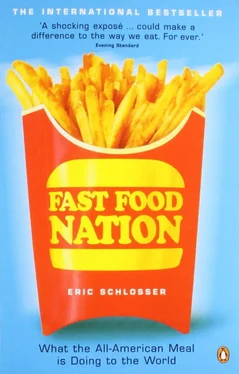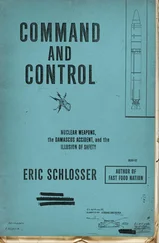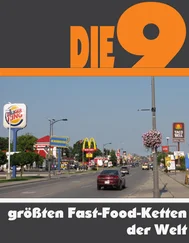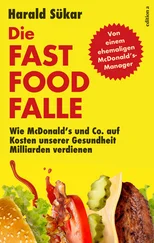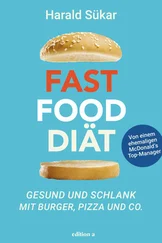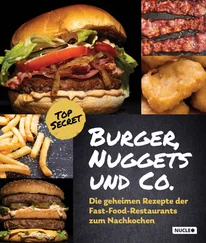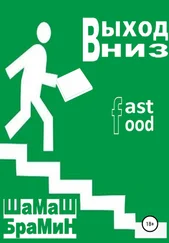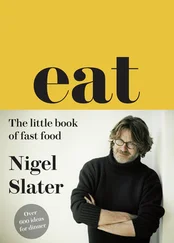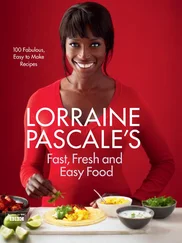Walt Disney sent Kroc a cordial reply and forwarded his proposal to an executive in charge of the theme park’s concessions. Disneyland was still under construction, its opening was eagerly awaited by millions of American children, and Kroc may have had high hopes. According to one account, Disney’s company asked Kroc to raise the price of McDonald’s french fries from ten cents to fifteen cents; Disney would keep the extra nickel as payment for granting the concession; and the story ends with Ray Kroc refusing to gouge his loyal customers. The account seems highly unlikely, a belated effort by someone at McDonald’s to put the best spin on a sales pitch that went nowhere. When Disneyland opened in July of 1955 — an event that Ronald Reagan cohosted for ABC — it had food stands run by Welch’s, Stouffer’s, and Aunt Jemima’s, but no McDonald’s. Kroc was not yet in their league. His recollection of Walt Disney as a young man, briefly mentioned in Grinding It Out , is not entirely flattering. “He was regarded as a strange duck,” Kroc wrote of Disney, “because whenever we had time off and went out on the town to chase girls, he stayed in camp drawing pictures.”
Whatever feelings existed between the two men, Walt Disney proved in many respects to be a role model for Ray Kroc. Disney’s success had come much more quickly. At the age of twenty-one he’d left the Midwest and opened his own movie studio in Los Angeles. He was famous before turning thirty. In The Magic Kingdom (1997) Steven Watts describes Walt Disney’s efforts to apply the techniques of mass production to Hollywood moviemaking. He greatly admired Henry Ford and introduced an assembly line and a rigorous division of labor at the Disney Studio, which was soon depicted as a “fun factory.” Instead of drawing entire scenes, artists were given narrowly defined tasks, meticulously sketching and inking Disney characters while supervisors watched them and timed how long it took them to complete each cel. During the 1930s the production system at the studio was organized to function like that of an automobile plant. “Hundreds of young people were being trained and fitted,” Disney explained, “into a machine for the manufacture of entertainment.”
The working conditions at Disney’s factory, however, were not always fun. In 1941 hundreds of Disney animators went on strike, expressing support for the Screen Cartoonists Guild. The other major cartoon studios in Hollywood had already signed agreements with the union. Disney’s father was an ardent socialist, and Disney’s films had long expressed a populist celebration of the common man. But Walt’s response to the strike betrayed a different political sensibility. He fired employees who were sympathetic to the union, allowed private guards to rough up workers on the picket line, tried to impose a phony company union, brought in an organized crime figure from Chicago to rig a settlement, and placed a full-page ad in Variety that accused leaders of the Screen Cartoonists Guild of being Communists. The strike finally ended when Disney acceded to the union’s demands. The experience left him feeling embittered. Convinced that Communist agents had been responsible for his troubles, Disney subsequently appeared as a friendly witness before the House Un-American Activities Committee, served as a secret informer for the FBI, and strongly supported the Hollywood blacklist. During the height of labor tension at his studio, Disney had made a speech to a group of employees, arguing that the solution to their problems rested not with a labor union, but with a good day’s work . “Don’t forget this,” Disney told them, “it’s the law of the universe that the strong shall survive and the weak must fall by the way, and I don’t give a damn what idealistic plan is cooked up, nothing can change that.”
Decades later, Ray Kroc used similar language to outline his own political philosophy. Kroc’s years on the road as a traveling salesman — carrying his own order forms and sample books, knocking on doors, facing each new customer alone, and having countless doors slammed in his face — no doubt influenced his view of humanity. “Look, it is ridiculous to call this an industry,” Kroc told a reporter in 1972, dismissing any high-minded analysis of the fast food business. “This is not. This is rat eat rat, dog eat dog. I’ll kill ’em, and I’m going to kill ’em before they kill me. You’re talking about the American way of survival of the fittest.”
While Disney backed right-wing groups and produced campaign ads for the Republican Party, Kroc remained aloof from electoral politics — with one notable exception. In 1972, Kroc gave $250,000 to President Nixon’s reelection campaign, breaking the gift into smaller donations, funneling the money through various state and local Republican committees. Nixon had every reason to like McDonald’s, long before tasting one of its hamburgers. Kroc had never met the president; the gift did not stem from any personal friendship or fondness. That year the fast food industry was lobbying Congress and the White House to pass new legislation — known as the “McDonald’s bill” — that would allow employers to pay sixteen- and seventeen-year-old kids wages 20 percent lower than the minimum wage. Around the time of Kroc’s $250,000 donation, McDonald’s crew members earned about $1.60 an hour. The subminimum wage proposal would reduce some wages to $1.28 an hour.
The Nixon administration supported the McDonald’s bill and permitted McDonald’s to raise the price of its Quarter Pounders, despite the mandatory wage and price controls restricting other fast food chains. The size and the timing of Kroc’s political contribution sparked Democratic accusations of influence peddling. Outraged by the charges, Kroc later called his critics “sons of bitches.” The uproar left him wary of backing political candidates. Nevertheless, Kroc retained a soft spot for Calvin Coolidge, whose thoughts on hard work and self-reliance were prominently displayed at McDonald’s corporate headquarters.
DESPITE A PASSIONATE OPPOSITION to socialism and to any government meddling with free enterprise, Walt Disney relied on federal funds in the 1940s to keep his business afloat. The animators’ strike had left the Disney Studio in a precarious financial condition. Disney began to seek government contracts — and those contracts were soon responsible for 90 percent of his studio’s output. During World War II, Walt Disney produced scores of military training and propaganda films, including Food Will Win the War, High-Level Precision Bombing , and A Few Quick Facts About Venereal Disease . After the war, Disney continued to work closely with top military officials and military contractors, becoming America’s most popular exponent of Cold War science. For audiences living in fear of nuclear annihilation, Walt Disney became a source of reassurance, making the latest technical advances seem marvelous and exciting. His faith in the goodness of American technology was succinctly expressed by the title of a film that the Disney Studio produced for Westinghouse Electric: The Dawn of Better Living .
Disney’s passion for science found expression in “Tomorrowland,” the name given to a section of his theme park and to segments of his weekly television show. Tomorrowland encompassed everything from space travel to the household appliances of the future, depicting progress as a relentless march toward greater convenience for consumers. And yet, from the very beginning, there was a dark side to this Tomorrowland. It celebrated technology without moral qualms. Some of the science it espoused later proved to be not so benign — and some of the scientists it promoted were unusual role models for the nation’s children.
Читать дальше
